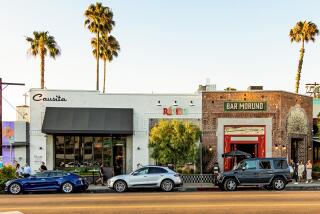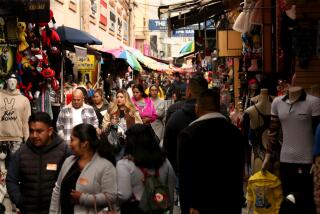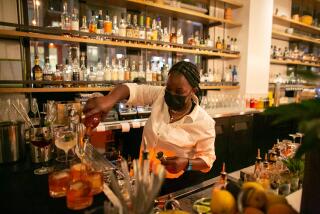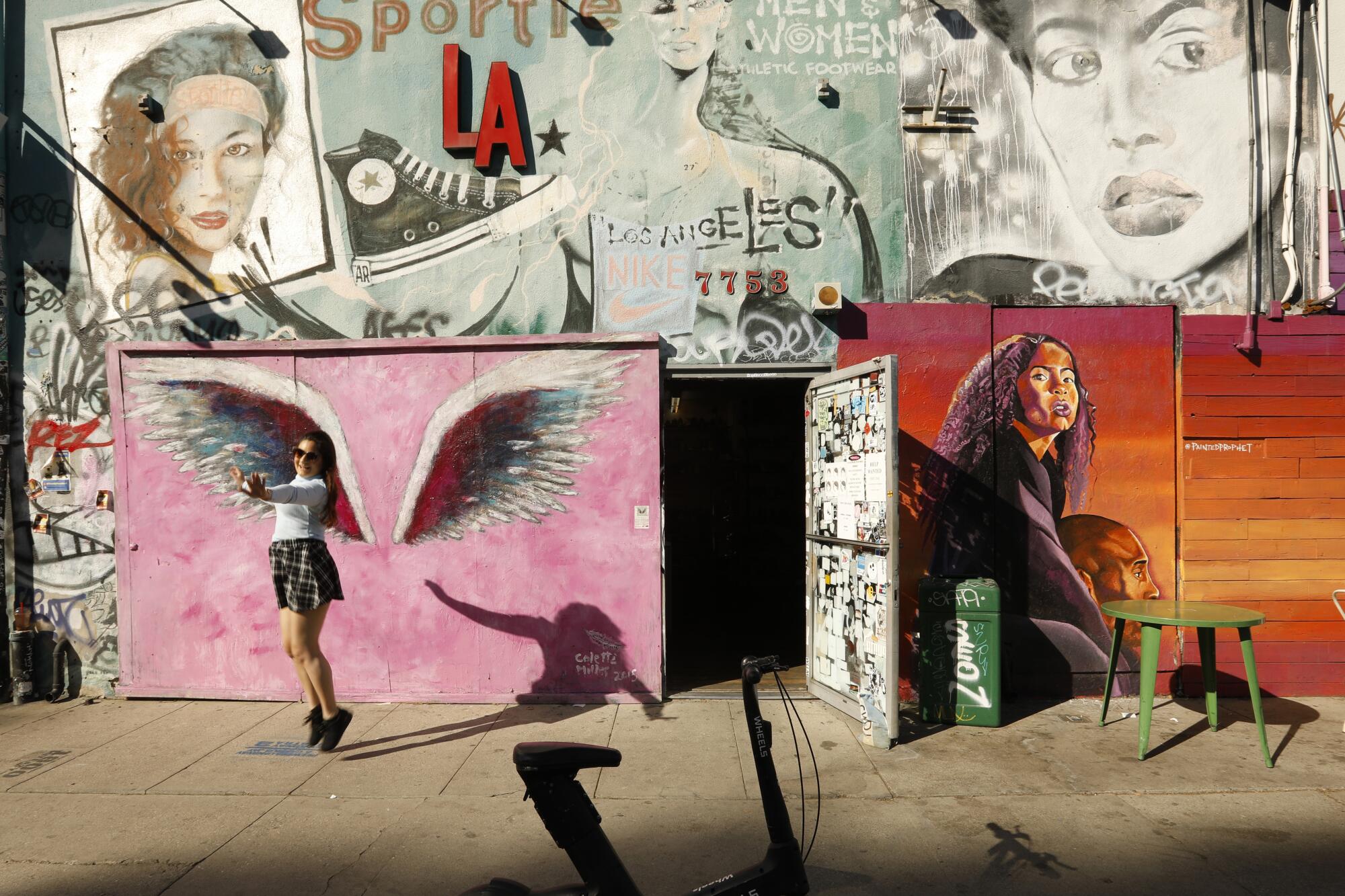
To the casual observer, Melrose Avenue on Monday afternoon was back in full swing. The sun shone brightly and throngs of fashionistas decked in edgy streetwear prowled the famed shopping district.
People clacked away on their laptops on the Starbucks patio. Even tattoo parlors and barbershops showed signs of life after a tumultuous year, with customers waiting on benches outside.
Earlier that morning, the iconic Pink’s Hot Dogs reopened after a voluntary two-month closure just off the corner of La Brea and Melrose avenues — where it began as a pushcart operation 81 years ago. Now that coronavirus case levels are falling and the vaccination effort is underway, Richard Pink, the son of the stand’s founders and its current co-owner, said it was time to kick-start the family business again.
“People want a sense of normalcy. They want to return to what it was like before what we’re going through,” Pink said just before the stand opened its doors for the first time since early January.
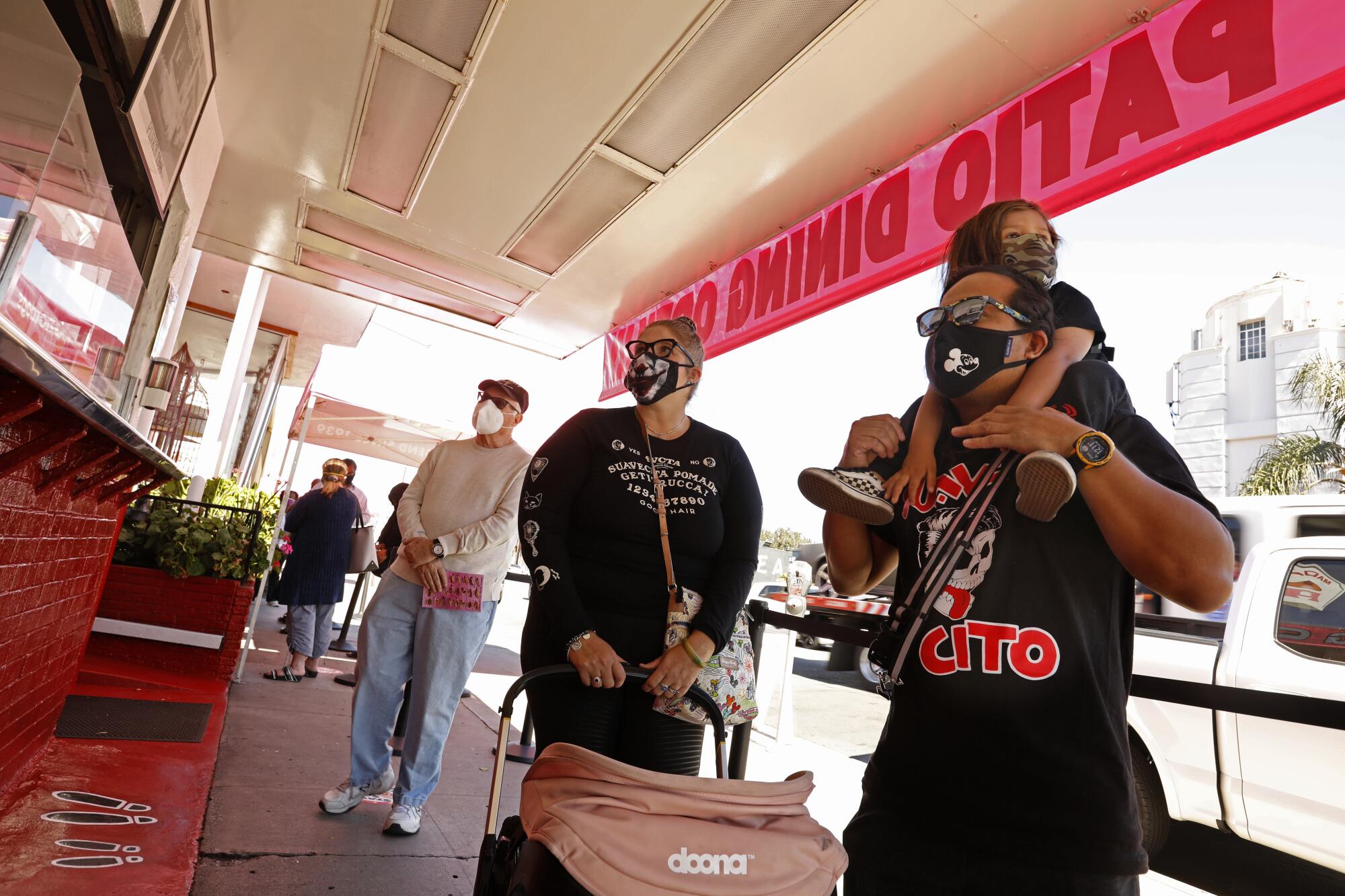
Still, the unsettling reality that the COVID-19 pandemic was far from vanquished tempered the optimism of business owners, who have gone through the cycle of hope and despair before. And things were far from normal: Business was nowhere near the level before the novel coronavirus surged across the U.S.
After the killing by a Minneapolis police officer of George Floyd, a Black man, in late May, protests erupted in the Melrose area. Though the protests were largely peaceful, some businesses were damaged — and some shops never reopened.
Things eventually began to pick up after all that happened in 2020, but some shops have recovered better than others.
“It really is a struggle. We haven’t made a profit. It’s just been coming out of the savings. But we’re in good company with the rest of the world,” said Donato Crowley, who co-owns Cosmo & Donato, a clothing store that specializes in flashy couture pieces made for Burning Man and other events.
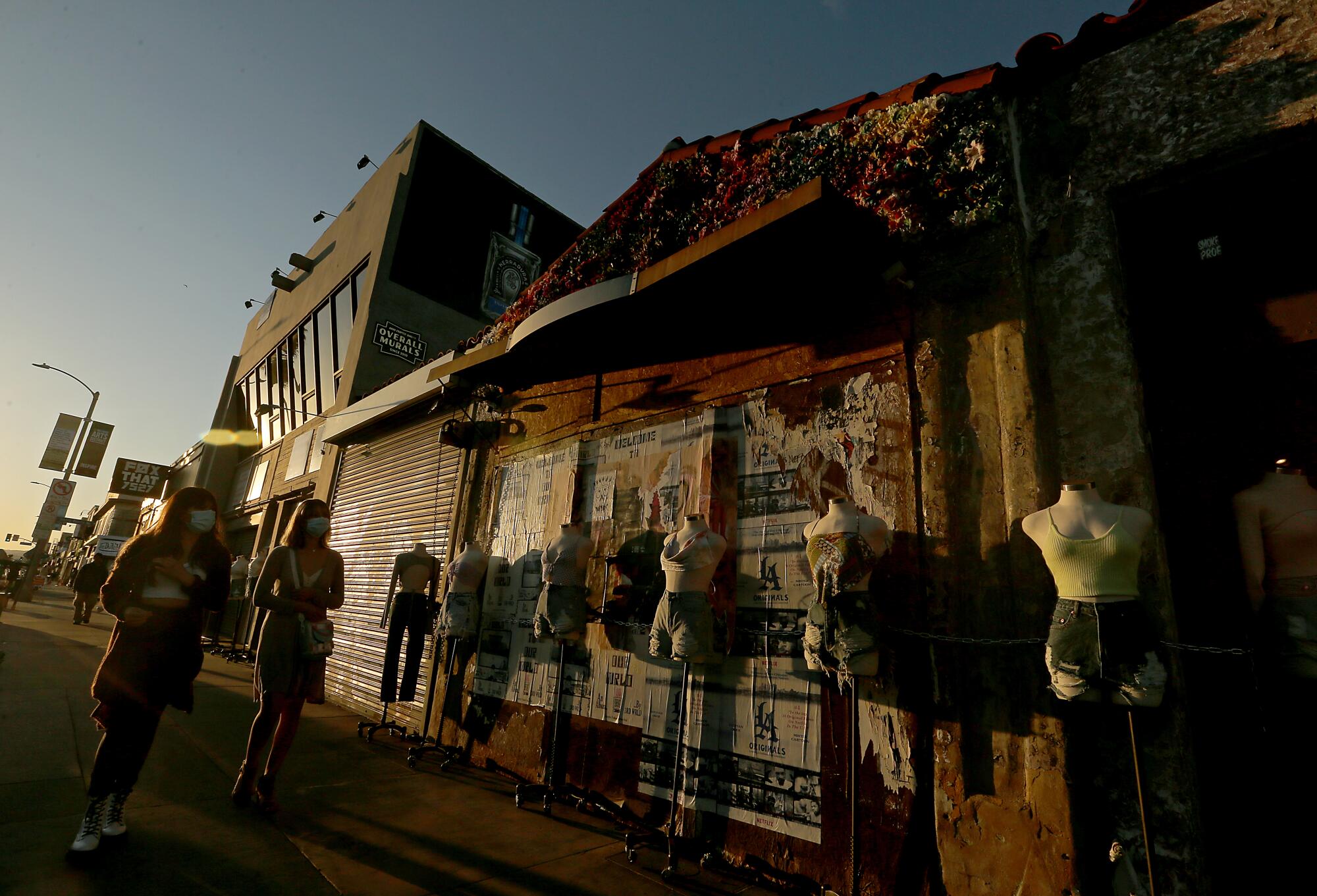
But Burning Man — the store’s “Christmas” — was canceled last year and organizers say they are not yet sure about whether this year’s event will happen. Crowley and his business partner have been surviving entirely on savings and are in the middle of applying for government assistance.
It’s the same story several blocks west at Paul Smith, a high-end men’s fashion retailer famous for a bright pink wall where tourists and influencers once swarmed to take Instagram photos. On Monday, there wasn’t anyone hanging around the wall, in part because the store is discouraging large groups from gathering there, according to store manager Henry Alcantar.
But there are fewer people showing up in general. Double-decker tour buses aren’t delivering the travelers who used to make up a large part of their customer base. About 1,300 people a week passed through the store on average before the pandemic closures last March, according to Alcantar. That’s dwindled to about 200.
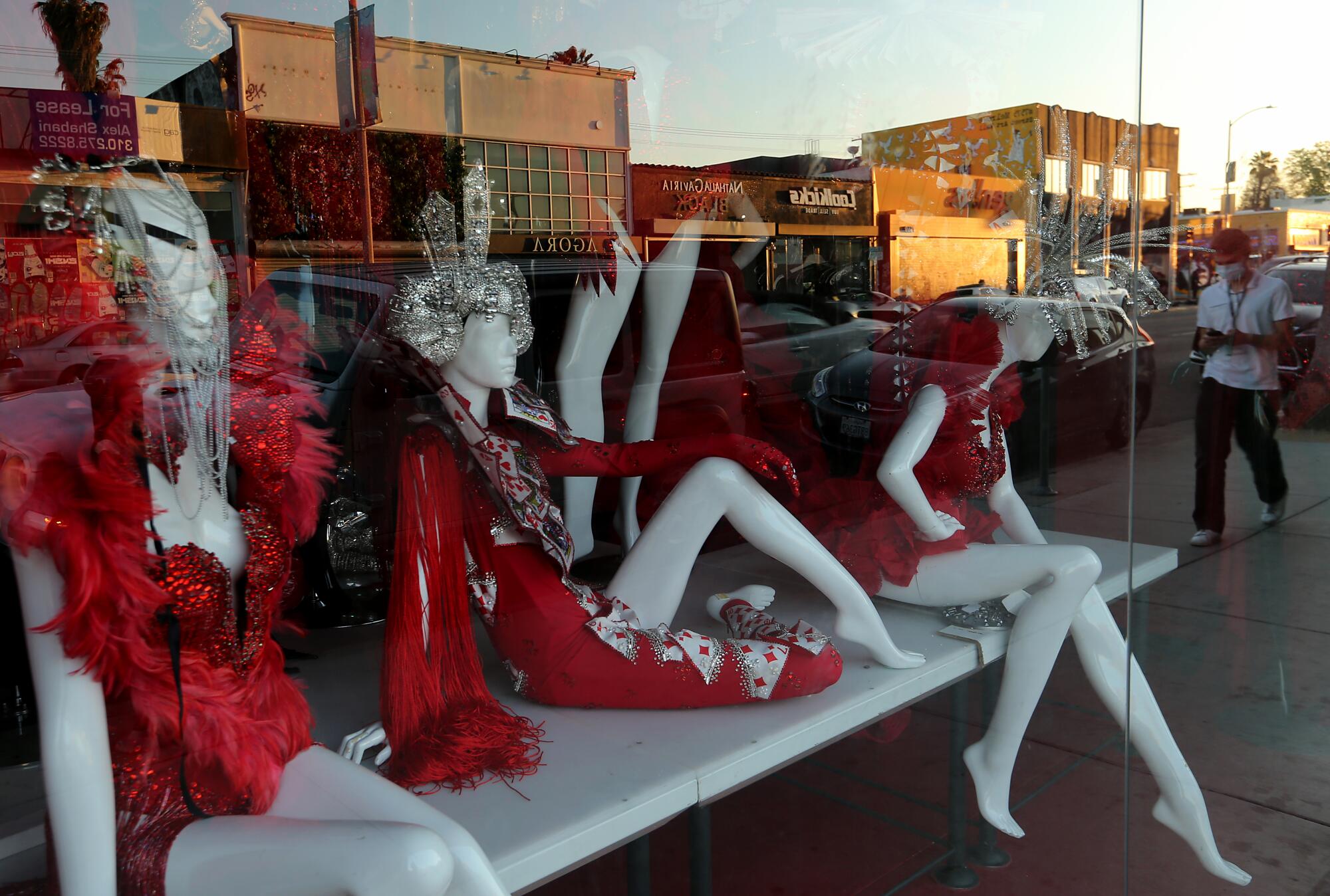
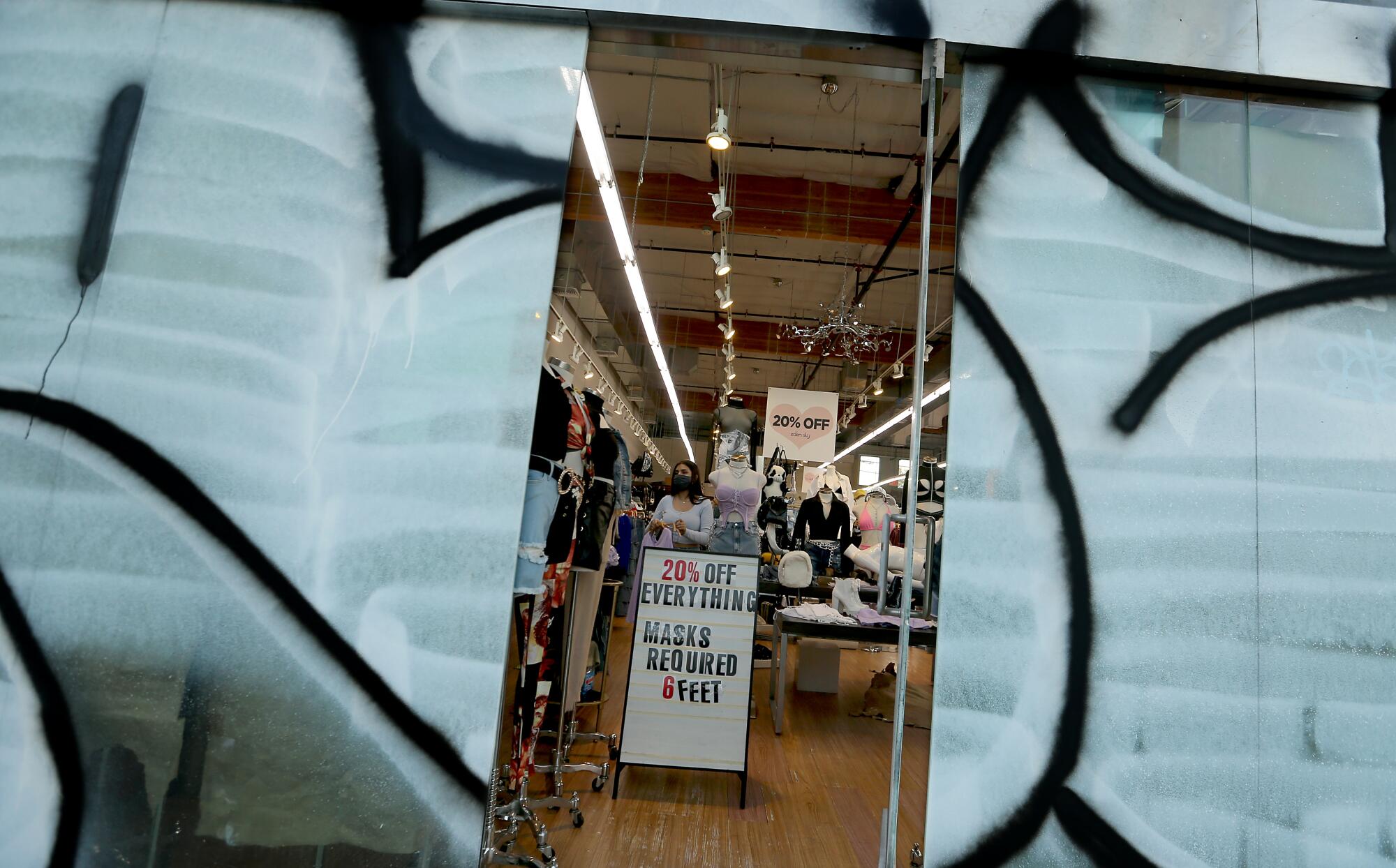
As a result, they’ve closed stores across the country, including temporarily shuttering one in downtown L.A. Hours were reduced and several employees were let go at the Melrose location.
“No one wants to be stuck inside,” said Alcantar, explaining why he thinks people haven’t been coming into the store. “They’ve been inside for long enough, so they just want to be outside.”
Normally at this time of the year, the retailer would be busy outfitting celebrities for the Golden Globes and other upcoming award’s shows. But people aren’t buying suits like they used to.
So Paul Smith pivoted to more casual wear. The sales associates, down to just two at the Melrose store, once wore suits. Now they’re expected to dress down to promote the new aesthetic. Alcantar himself was wearing black Converse.
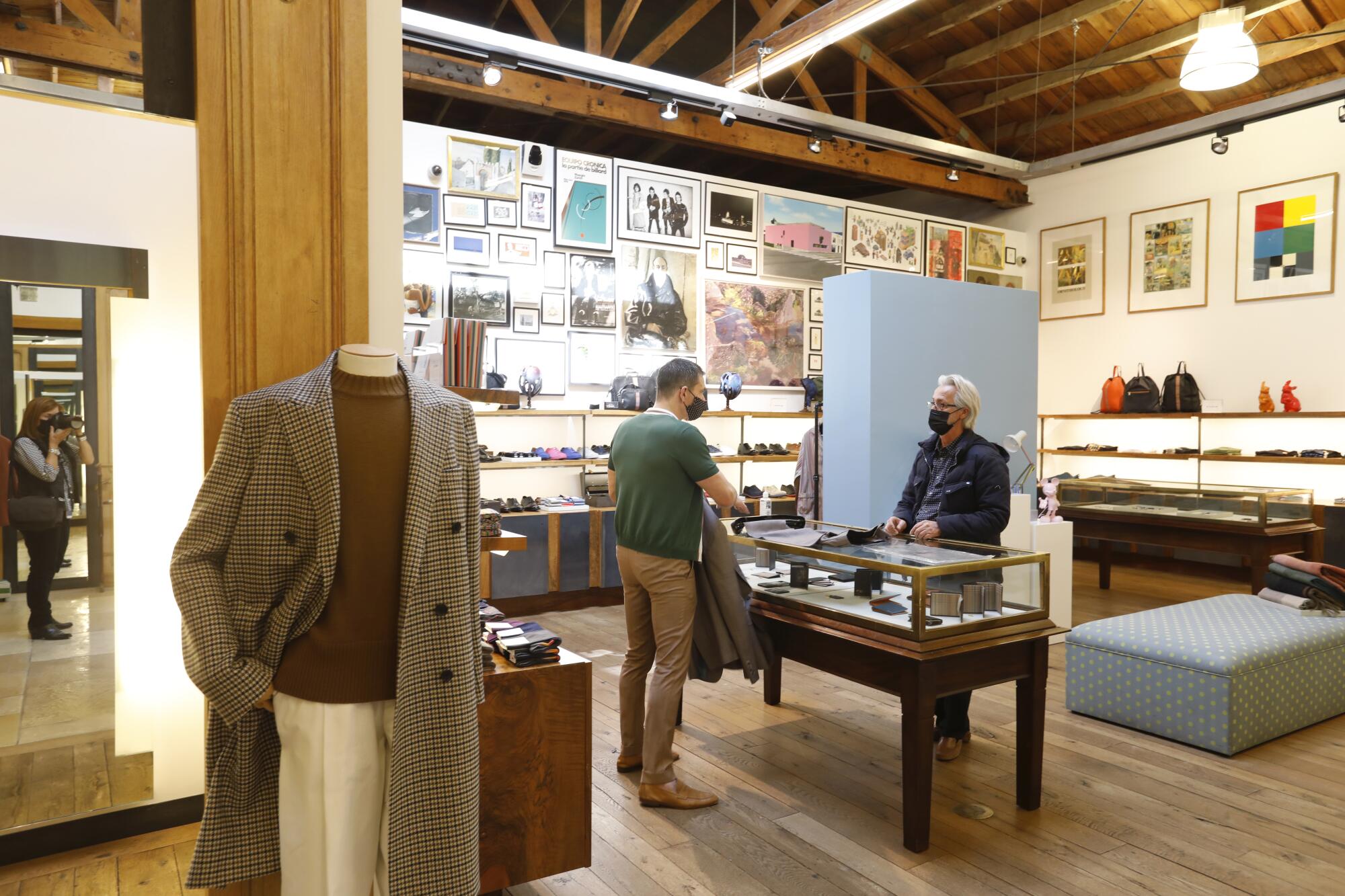
Even Pink’s, with a dedicated clientele and storied history, has been stretched financially. Down about 30% in revenue, Pink said all earnings are used to keep the lights on and hot dogs cooking. There have been no profits since the pandemic struck last year, he said.
Others have been more fortunate. Joshua Jones, 30, who began making one-of-a-kind clothing pieces under the brand Dead Homies about a year and a half ago, said he’s been able to pay his bills with earnings. Having a low overhead helps: the Long Beach resident operates a permitted clothing stand not far from Fairfax High School.
The items are also versatile. While Jones said he’s benefited from a visible, wealthy celebrity clientele, the clothing can be dressed up or down. Jones, an avid skateboarder, said he’s best known for his hats, which have showed up in music videos but wouldn’t look out of place in a skate park.
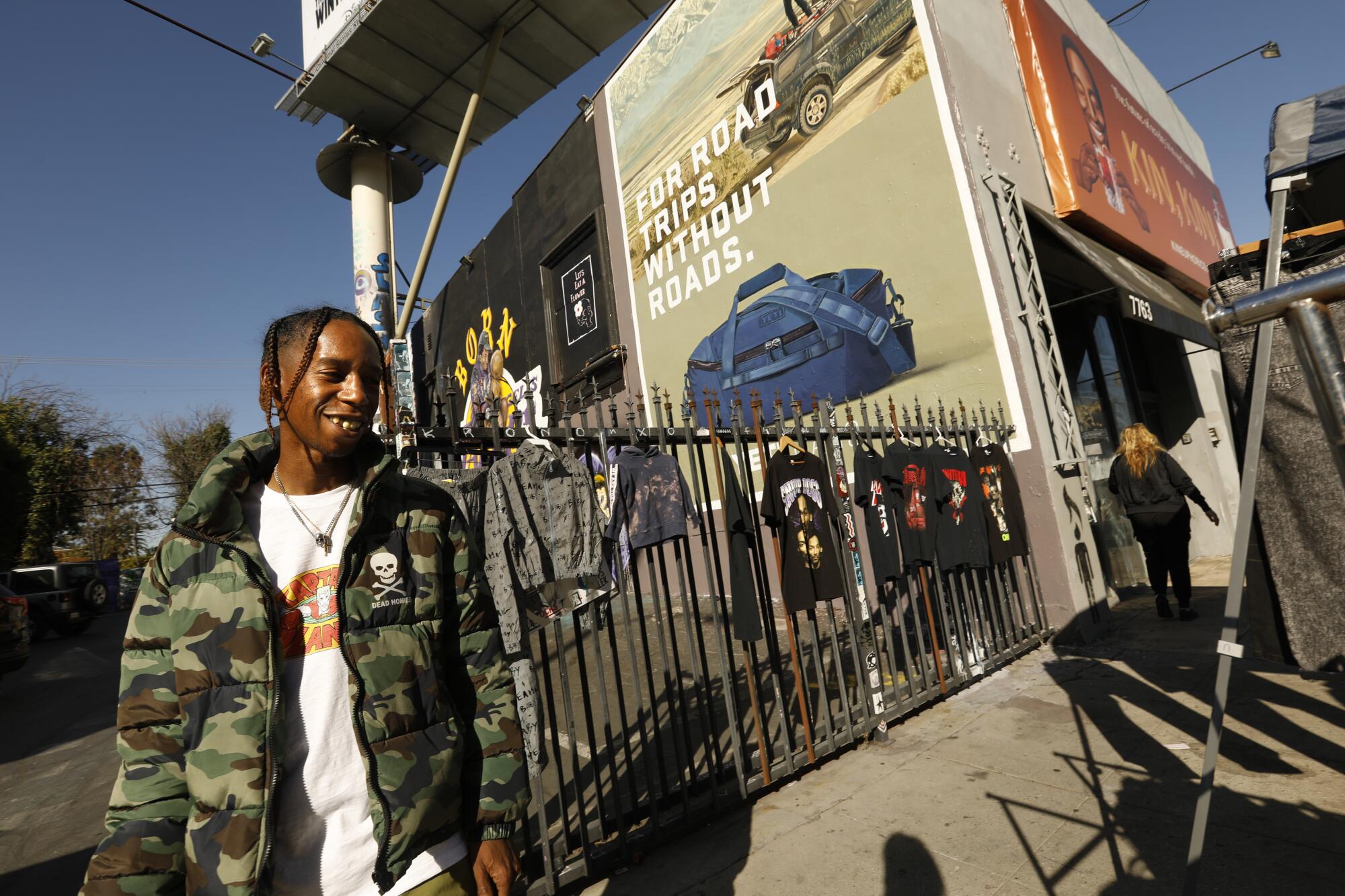
Tarniesha Stimage was celebrating her birthday on Monday with a friend. She was double-masked and still concerned about COVID-19, but wanted to spend the day out shopping with a friend.
“It’s my birthday and I need some sunshine,” Stimage said. “I just need to walk and see people at a distance.”
Golden Daggers Tattoo Studio reopened about a month ago. Coronavirus restrictions shuttered the business for the vast majority of the previous year, according to Julio Martinez, a tattoo artist there.
Even though Martinez has been subsisting on his savings, work is starting to return, the 40-year-old said. The five artists in the shop get about a client a day, he said.
“A lot of people think the tattoo shops are not essential, but I think every job, every business, is essential.”
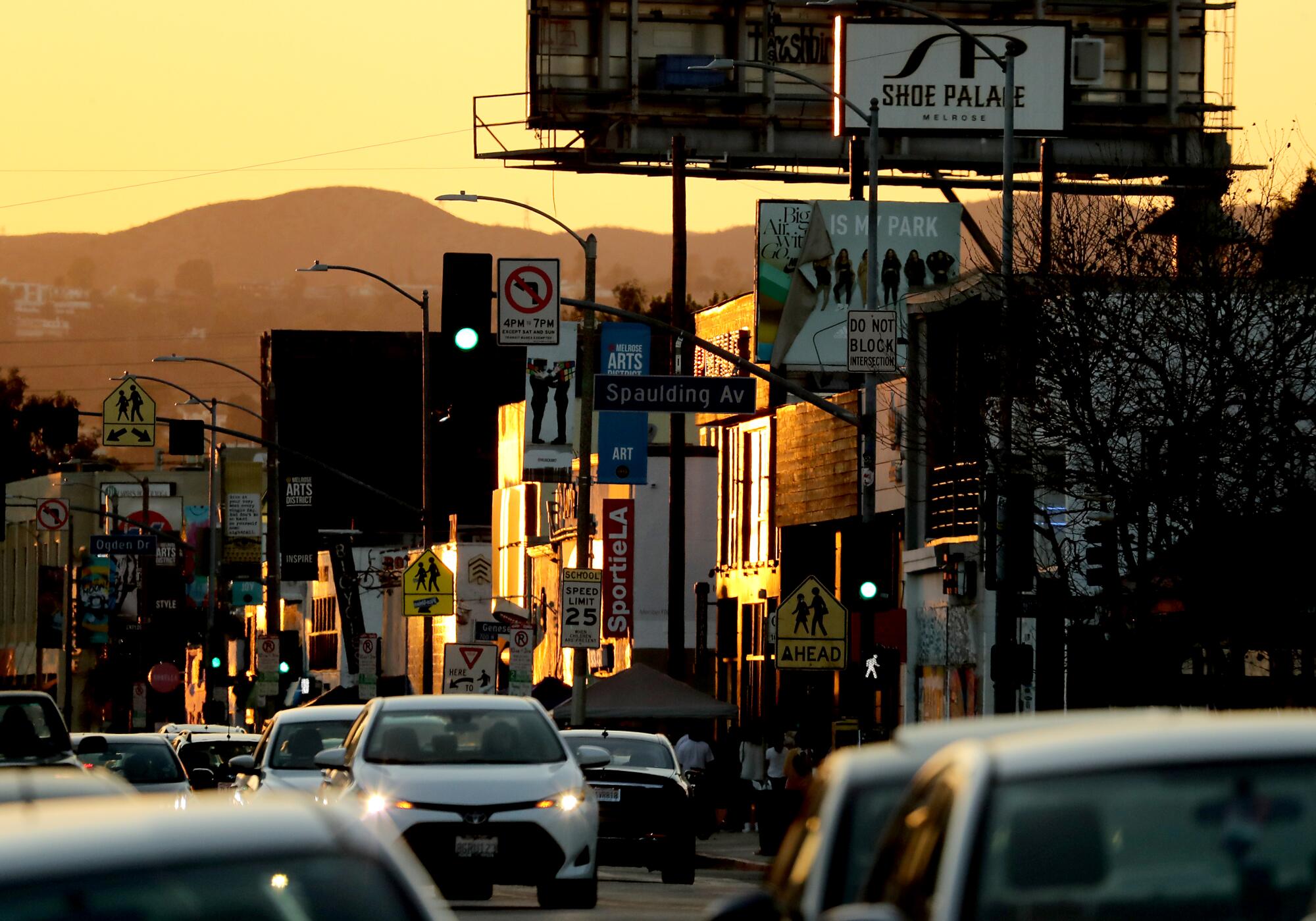
More to Read
Sign up for Essential California
The most important California stories and recommendations in your inbox every morning.
You may occasionally receive promotional content from the Los Angeles Times.
